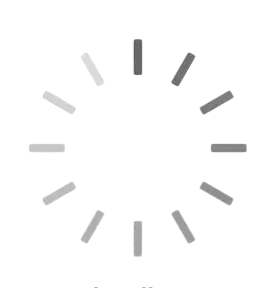Table of Contents
ToggleIntroduction to AI in Medical Imaging
In recent years, the integration of artificial intelligence (AI) in medical imaging has revolutionized healthcare practices. AI algorithms, coupled with advanced imaging techniques, have paved the way for more accurate diagnostics, efficient patient care, and cost-effective solutions. This article explores the astonishing benefits of AI in medical imaging, highlighting its transformative impact on the healthcare industry.
Improving Accuracy and Efficiency
AI-assisted Diagnostics
AI-powered algorithms analyze medical images with unprecedented accuracy, aiding healthcare professionals in detecting abnormalities and diseases at early stages. By leveraging machine learning and deep learning techniques, AI systems can identify subtle patterns and anomalies in imaging data, leading to more precise diagnoses and timely interventions.
Streamlining Workflow
Furthermore, AI streamlines the workflow in medical imaging departments by automating repetitive tasks such as image analysis and report generation. This not only saves time for radiologists and clinicians but also ensures consistency and standardization in diagnostic procedures. As a result, healthcare facilities can accommodate more patients efficiently, reducing waiting times and improving overall healthcare delivery.
Enhanced Patient Care
Early Detection of Diseases
One of the most significant benefits of AI in medical imaging is its ability to facilitate early detection of diseases. By analyzing medical images comprehensively, AI algorithms can identify subtle changes indicative of various conditions, including cancer, cardiovascular diseases, and neurological disorders. Early detection enables prompt intervention, leading to better treatment outcomes and improved patient prognosis.
Personalized Treatment Plans
Moreover, AI contributes to the development of personalized treatment plans by analyzing patient data and medical imaging results. By considering individual characteristics and disease progression, AI systems can recommend tailored interventions and therapies that optimize patient outcomes. This personalized approach to healthcare ensures that each patient receives the most effective treatment tailored to their specific needs and conditions.
Cost-Effectiveness and Accessibility
Reducing Healthcare Costs
The integration of AI in medical imaging offers cost-effective solutions for healthcare providers and patients alike. By streamlining diagnostic processes, AI reduces the need for unnecessary tests and procedures, thereby lowering healthcare costs and minimizing financial burden on patients. Additionally, AI-driven predictive analytics help identify high-risk patients and intervene proactively, preventing costly complications and hospital readmissions.
Remote Healthcare Solutions
Furthermore, AI enables remote healthcare solutions by facilitating telemedicine and remote monitoring through medical imaging technologies. Patients in remote or underserved areas can access timely diagnostics and consultations without the need for physical visits to healthcare facilities. This not only improves accessibility to healthcare services but also enhances patient convenience and satisfaction.
Challenges and Ethical Considerations
Data Privacy and Security
Despite its numerous benefits, the widespread adoption of AI in medical imaging raises concerns about data privacy and security. Medical imaging data contains sensitive information about patients’ health status, making it susceptible to unauthorized access and misuse. It is essential to implement robust security measures and adhere to strict privacy regulations to safeguard patient data and maintain trust in AI-driven healthcare systems.
Ensuring Transparency and Accountability
Moreover, transparency and accountability are crucial when deploying AI algorithms in medical imaging. Healthcare professionals must understand how AI systems make decisions and interpret imaging data to ensure accurate diagnoses and treatment recommendations. Transparent algorithms foster trust among clinicians and patients, promoting acceptance and adoption of AI technologies in healthcare settings.
Future Outlook
Advancements in AI Technology
Looking ahead, advancements in AI technology hold promise for further improving medical imaging capabilities. Continued research and development efforts aim to enhance the accuracy, efficiency, and accessibility of AI-driven diagnostic tools. Novel AI algorithms and imaging techniques will enable healthcare providers to address evolving healthcare challenges and deliver better patient outcomes.
Integration with Healthcare Systems
Furthermore, the integration of AI into existing healthcare systems will play a pivotal role in transforming patient care delivery. Seamless interoperability between AI platforms and electronic health records (EHRs) facilitates data sharing and collaborative decision-making among healthcare professionals. By harnessing the power of AI, healthcare organizations can unlock new insights from vast amounts of medical data, driving innovation and advancement in medical imaging practices.
Conclusion
In conclusion, AI has emerged as a game-changer in medical imaging, offering unprecedented benefits for healthcare providers and patients alike. From improving diagnostic accuracy and efficiency to enhancing patient care and accessibility, AI revolutionizes healthcare delivery in profound ways. While challenges such as data privacy and transparency remain, the transformative potential of AI in medical imaging is undeniable, shaping the future of healthcare for the better.
FAQs
-
- How does AI improve diagnostic accuracy in medical imaging?
AI algorithms analyze medical images with high precision, identifying subtle patterns and anomalies that may be missed by human observers, thus enhancing diagnostic accuracy.
- How does AI improve diagnostic accuracy in medical imaging?
-
- What are the benefits of early disease detection facilitated by AI?
Early disease detection enables timely intervention and treatment, leading to better patient outcomes, reduced healthcare costs, and improved prognosis.
- What are the benefits of early disease detection facilitated by AI?
-
- How does AI contribute to personalized treatment plans?
AI analyzes patient data and imaging results to develop tailored treatment plans based on individual characteristics and disease progression, optimizing patient outcomes.
- How does AI contribute to personalized treatment plans?
-
- What ethical considerations are associated with the use of AI in medical imaging?
Ethical considerations include data privacy and security, transparency in AI algorithms, and accountability in decision-making to ensure patient safety and trust in AI-driven healthcare systems.
- What ethical considerations are associated with the use of AI in medical imaging?
-
- What advancements can we expect in AI technology for medical imaging in the future?
Future advancements in AI technology will focus on improving the accuracy, efficiency, and accessibility of diagnostic tools, driving innovation and advancement in medical imaging practices.
- What advancements can we expect in AI technology for medical imaging in the future?
Do you like to read more Blog content? Read our blogs at PintoraBlogs








